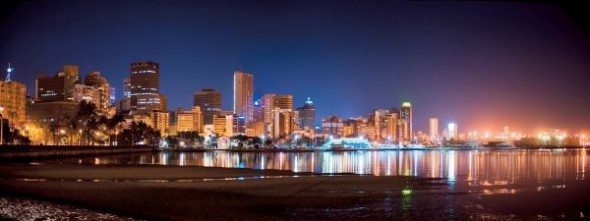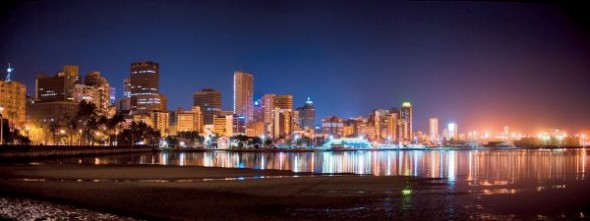
Durban: A place to visit
Durban is stepping out of the shadow of Cape Town, traditionally South Africa’s tourist Mecca. Durbs, as it is affectionately known, is a melting pot of Zulu, British colonial and Indian culture – and it is seventh on the New York Times list of places to visit in 2015. In 1962, Nelson Mandela was captured […]

Durban is stepping out of the shadow of Cape Town, traditionally South Africa’s tourist Mecca. Durbs, as it is affectionately known, is a melting pot of Zulu, British colonial and Indian culture – and it is seventh on the New York Times list of places to visit in 2015.

In 1962, Nelson Mandela was captured and arrested in the town of Howick, outside Durban, and thus began his 27 years of incarceration. Mandela returned to KwaZulu-Natal to begin a new journey when he chose to cast his first vote in Inanda, Durban as a free man in 1994.
Durban rocks. It’s not just the year-long balmy weather that allows you to sip cocktails on the pier, or the glamour of the Durban July or its International Film Festival. It is the attraction of the Blues festival and the long sub-tropical summers that allow you to sunbathe, swim and surf on the city’s famous beaches.
Yet the beaches – described by the New York Times as “lovely” but “a touch gauche” – are not all Durban is about. According to the city’s tourism website, eThekwini is a trendsetter, a mature and ambitious liveable city “offering great lifestyle, speckled with adventure activities, blessed with natural beauty”.
Africa’s busiest port is a gumbo flavoured by British explorers, Indian merchants and Zulu traditions. It can rightly claim to be South Africa’s most African city. You can enjoy a balmy evening listening to Zulu choirs practising in any open space they can find, or visit the Indian Spice Market in central Durban. The old City Hall with its wood panelled library, art museum – the first in the country to start collecting African art – and diorama-filled natural museum are housed in a building described as “bold and progressive” when it was built in 1903.
The world’s tallest bungee swing is found at the Moses Mabhida Stadium.
A World Cup host city, eThekwini began a major facelift while building its sleek stadium. It revitalised the beachfront to make it more pedestrian friendly. Once home to the biggest surfing event in Africa, Durban still claims the mantle of sporting capital of South Africa. Its wealth of stadiums and sports clubs and its butter yellow sand attest to a city best experienced outdoors. Whether it’s a lazy cycle along the new beachfront promenade or a soothing dip in the warm Indian Ocean after completing the Comrades Marathon, Durban offers everything for the active lifestyle.
The Aliwal Shoal is considered as one of the world’s top diving sites.
Laid out in a grid, the CBD has seen better days, but it has an abundance of impressive art deco constructions and extravagant colonial buildings. Daytime Durban is a buzzing, gritty city with a languorous African cadence.
News network CNN described the city’s wharf side as “the sort of neighbourhood where movie mobsters might dispose of a corpse, but it’s both safe and worthwhile”. It is home to the BAT Centre, a community centre that celebrates the region’s artists and craftsmen. It also hosts a very successful Sunday Jazz Sundowners event that has sparked the live music scene back into life.
The rickshaw was brought to Durban in 1893 by the sugar magnate Sir Marshall Campbell, from London. Rickshaw pullers, often dressed in traditional Zulu regalia, have been operating in Durban for more than 100 years.
Florida Road is a moveable feast of cuisines but the city is famous for its bunny chow, a popular, convenient meal of curry overflowing its hollowed out white bread container. The bread is torn off in hunks to sop up the curry. The bread is there to help follow the only rule when it comes to bunny chow: you eat with your hands.
The spiritual leader of the Indian independence movement, Mahatma Ghandi, began his political journey in Durban.
Manilal Patel runs Patel’s, one of two Durban restaurants recognised with perfecting the bunny. He sells 500 bunnies a day out of his tiny shop, some to customers who travel from across the country to enjoy the vegetarian curries on which the shop has built a reputation over its 80-year existence.
By : Sulaiman Philip
Source: www.mediaclubsouthafrica.com
